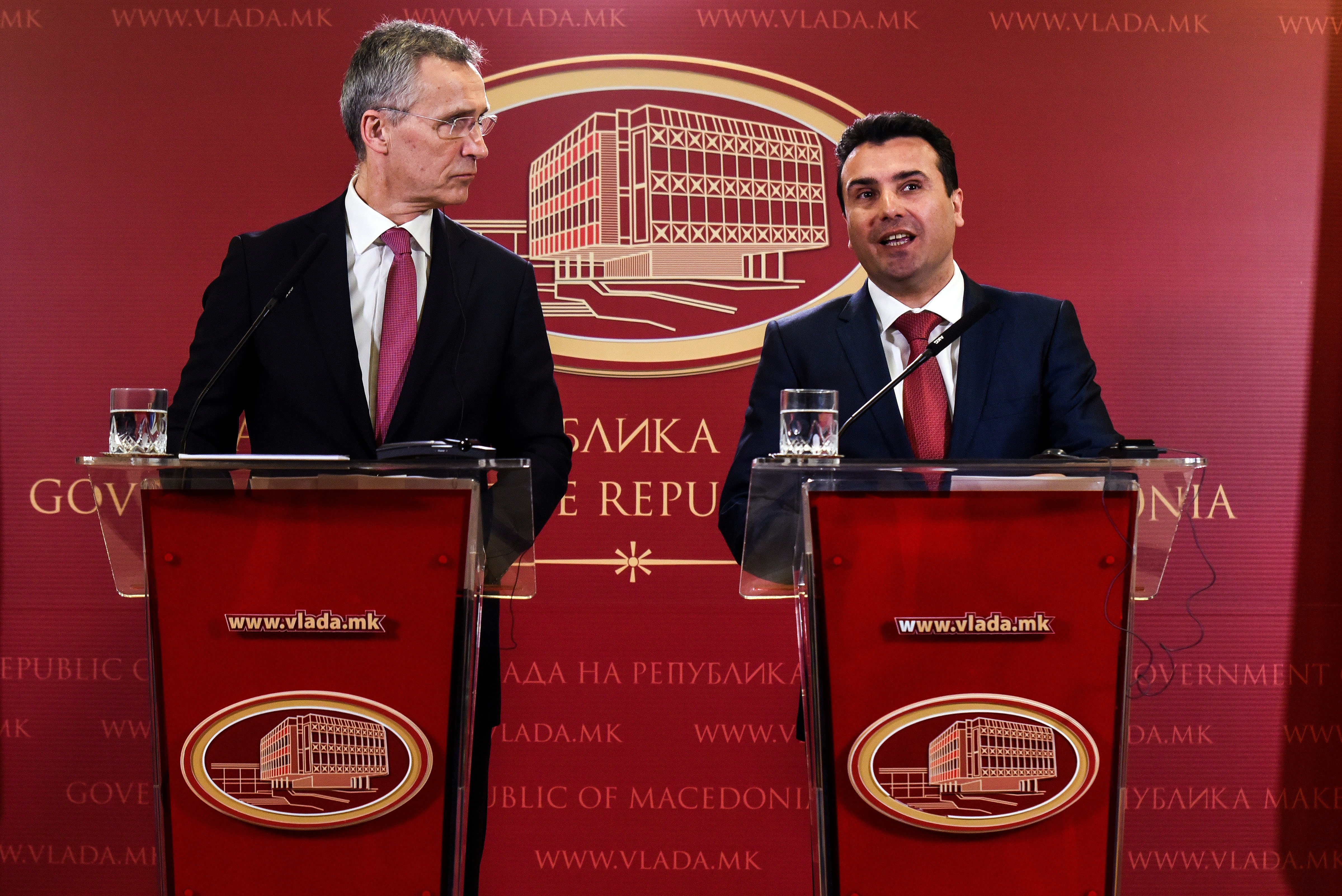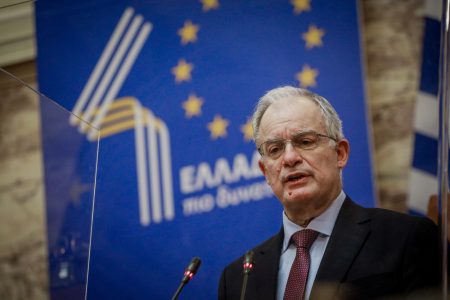When the UN special representative on the FYROM naming issue, Matthew Nimetz, presented his latest package of proposals on the FYROM naming issue, he was reshuffling the deck for what promises to be a tough, summit-level poker game between Prime Minister Alexis Tsipras and FYROM PM Zoran Zaev, who are scheduled to meet on the sidelines of the Davos, Switzerland, World Economic Forum, on January 24.
The Greek government believes that the veteran mediator’s proposals include positive elements for Athens, and hence it has chosen to keep quiet amidst some particularly negative reactions in Skopje, awaiting the official reactions from the FYROM government.
Nimetz’s proposals were not received enthusiastically by all in Skopje. The fact that the five alternative proposed names would necessarily be denoted with a Slavic spelling internationally has provoked consternation, as has the vague treatment of what the nationality and language of FYROM’s citizens will be called.
Nimetz hopes that both sides might cherry pick the hopefully not conflicting elements of his proposals so as to allow FYROM’s accession to Nato at the Alliance’s July summit.
In Greece, the government and the main opposition conservative New Democracy party are at loggerheads over the issue.
In Skopje, the government of Zoran Zaev is not on the same page as President Gjorge Ivanov, who derives from the VMRO-DPME party of the nationalist ex-PM Nikola Gruevski, and Zaev’s parliamentary majority is slim.
Ioannis Armakolas, an assistant professor of Balkan, Slavic and Eastern Studies at Greece’s University of Macedonia, says that public opinion in Greece has not been adequately prepared by the political leadership for the parameters of a compromise settlement, and that the Zaev government faces political weaknesses due to its slim parliamentary majority.
Marilena Koppa, an associate professor at the Panteion University, who is a former close associate of ex-prime minister George Papandreou and a former MEP, says that by all appearances the Nimetz proposals are positive.
“Almost all of the name variations tabled involve a compound name denoted with a Slavic spelling, which will not be translatable,” Koppa told To Vima.
Over the last years, Athens has expressed its preference for a geographic qualifier attached to the name Macedonia, though it might be easier to strike a settlement based on a temporal qualifier, such as Nova Makedonija, a solution that appears to have gained momentum.
The breadth of the usage of the new name will also be an issue that could hinder a settlement.
Armakolas notes that the Zaev government lacks the two-thirds parliamentary majority required to revise the constitution and the country’s constitutional name, which is Republic of Macedonia, and to eliminate references to a Macedonian nationality and language.
Many in Greece who wish to put to rest once and for all Skopje’s traditional irredentism focus on the need for related constitutional revisions.
Reporting by Angelos Athanasopoulos



